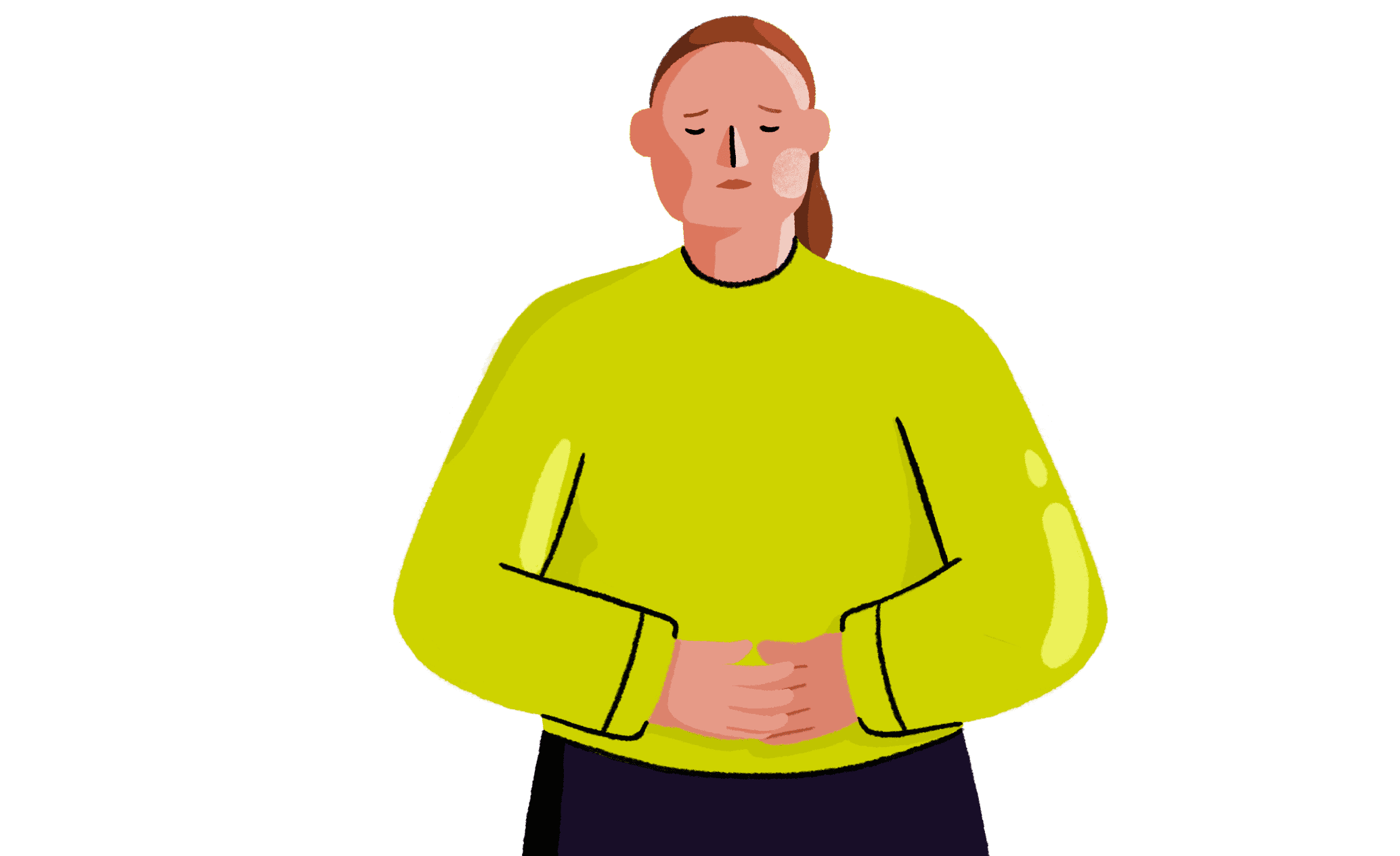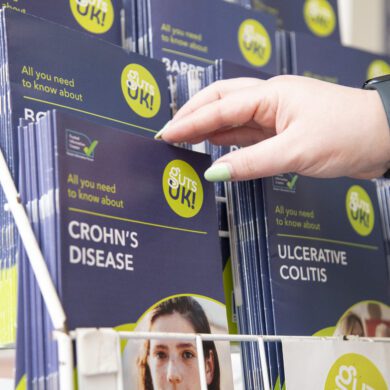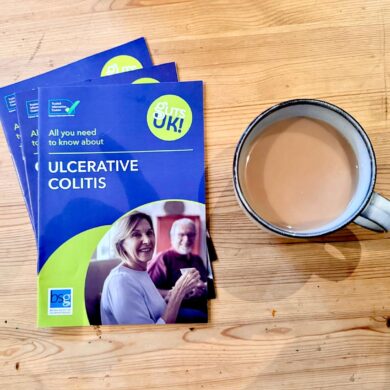Crohn’s and Colitis Awareness Week
December 2026
Crohn’s and Colitis Awareness Week takes place in December each year. Crohn’s disease, ulcerative colitis and microscopic colitis are the three main conditions classed as an Inflammatory Bowel Disease (IBD).
Our friends Crohn’s & Colitis UK are the UK’s leading organisation supporting people with Crohn’s and colitis.
What is Crohn’s disease?
Crohn’s disease is a condition that causes gut inflammation. It occurs when parts of the gut become inflamed. Symptoms include diarrhoea, abdominal pain and tiredness and inflammation can range from mild to severe. Some severe cases may need strong medicine or even surgery. It is a lifelong condition and prevalence is equal between genders.
Crohn’s disease affects 1 in every 650 people and is s commonly diagnosed is young adolescents and young adults under the age of 30.

What is ulcerative colitis?
Ulcerative colitis is a disease of the large bowel (the colon). If the inflammation within the large bowel becomes severe enough, ulcers may form in the lining of the large bowel. Symptoms include diarrhoea, abdominal pain and bleeding or passing mucus (white jelly) from the back passage. Some severe cases may require strong medicine or even surgery.
Thought to affect around 1 in 420 people, it is becoming more common over time, with the peak age of diagnosis in people aged between 15 to 25 years old.

What is microscopic colitis?
Microscopic Colitis (MC) is characterised by watery diarrhoea, usually accompanied by urgency and problems with bowel control. People affected often need to identify where the nearest toilets are before leaving the house to avoid accidents and in some cases, some people are unable to leave the house. The severity of symptoms differs from person to person and can sometimes lead to a substantial decline in their quality of life. Microscopic colitis can be treated with a course of gut-specific steroids or with symptom-relieving medicines, but some people may require further treatment or investigations.
There are 17,000 new cases of microscopic colitis diagnosed each year, but the real number of people living with the condition is thought to be much higher. Scientists estimate that at least 1 in 1,000 adults are living with microscopic colitis, but it is underreported and misdiagnosed. We help to raise vital awareness, especially during April for Microscopic Colitis Awareness Week.

Here are just a few words from our story sharers…
Crohn’s has taught me to be my own advocate. Being honest doesn’t make you weak. It gives you control. Chronic illness doesn’t make you less capable. Anyone can become unwell. We all deserve understanding and support.
– Read Sharan’s Crohn’s disease story.

To anyone going through this: I know it’s scary, and I know you are in pain, but listen to the doctors and do everything you can to not only take care of yourself but try not to let the disease control your life. If the path of your treatment takes you down the route of needing a stoma, such as an ileostomy, don’t worry – it really is nowhere near as bad as you imagine, and for most people, it can give them more of their life back. Look for support groups locally and online – there are people already asking the questions you might feel too embarrassed to ask. You can get help without judgment. You’re not alone, and you can get through this!
– Read Sean’s ulcerative colitis story.

Suddenly, I couldn’t go anywhere if there wasn’t a toilet in sight. There was no warning; I’d feel an urge to go to the toilet and within seconds, I’d be passing watery stools.
You know when something is wrong. I know it might feel embarrassing and that might stop people from getting help, but know that help is there, and life can return to normal.
– Read Diane’s microscopic colitis story.

Why is it important to raise awareness of Crohn’s and colitis?
There are often many presumptions and misunderstandings when it comes to Crohn’s and colitis. Not every digestive condition is visible and it’s vital that those affected get the support that they need, when they need it. Guts UK exists to stop people from suffering in silence and alone.

By raising awareness, together, we can combat stigmas commonly associated with these digestive conditions and reduce misinformation. We can put our trustworthy patient information into the hands of those who need it when they need it most. We can fund vital research into kinder treatments and ultimately, a cure. Together, we can create a world where talking about your guts, symptoms, and conditions is the norm.
Other awareness events in the year for Crohn’s and colitis include Microscopic Colitis Awareness Week in April and World IBD Day in May.
How can I help this Crohn’s and Colitis Awareness Week?
- You can help reach those suffering in silence and alone. Please consider donating £3 a month to Guts UK. Thank you.
- You can help by following us on social media and sharing our awareness and information posts throughout the awareness week itself, and any day throughout the year. Any day is a good day to raise awareness! Scroll to the bottom of this article to discover our social media links and spread the word. You never know who we might reach and help together.
- Share your own experience, or a loved ones experience with IBD to your own circles, and on your own social media channels. If you’d be interested in the possibility of sharing your story, please fill in and submit our story-sharing form.
- Fundraise for Guts UK Charity to help us abolish the taboos surrounding digestive health, and get to grips with guts. Whether it’s a sponsored silence, bake sale or a sponsored hike, you can fund life-changing research, and empower people to seek help sooner.




